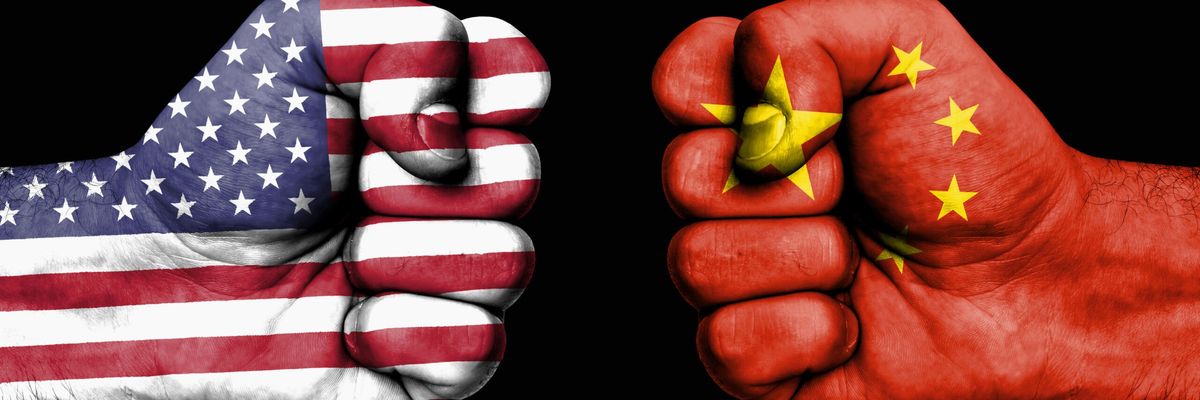More than 40 percent of Americans believe it is likely that the United States will have a direct military confrontation with China within the next five years, according to a Reuters/Ipsos poll on perceptions of U.S. relations with other countries, released on Thursday.
The two-day poll, which was conducted online earlier this week, also shows that a strong majority of Americans think Washington needs to do more to prepare for military threats from China.
However, Americans are more divided on questions of aiding Taiwan, with half of respondents wanting to provide Taiwan with the military resources to help deter an attack from China. A slight plurality opposes the deployment of U.S. troops to defend Taiwan from such an attack.
Overall, 75 percent of respondents had an unfavorable view of China, including 32 percent who said that they had a “very unfavorable” view. The negative perceptions of China presented in this survey track with other recent polling trends which indicate that Americans’ views toward Beijing are at record lows.
The negative numbers may suggest that the constant framing of China as a rival, increased fear mongering among members of Congress, the media, and the Pentagon, and predictions on the likelihood of a great power war in the near-term — have affected public opinion regarding the threat that China poses.
In general, Republican respondents had more hawkish views toward China than their Democratic counterparts. Republicans predict that the U.S.-China relationship will continue to deteriorate in the next half-decade, with only 14 percent agreeing that the “relationship will become more friendly in the next 5 years,” and 58 percent saying that “direct military conflict between the U.S. and China” was likely over that same time period. Those numbers were 32 percent and 36 percent for Democrats, respectively.
Similarly, when asked to rank how much of a threat various countries posed to the United States on a scale of one to five, with 1 meaning “no threat” and 5 representing an “imminent threat” nearly half of Republican respondents called China an “imminent threat,” compared to 28 percent of Democrats. For both parties, a plurality of those surveyed chose “imminent threat.”
Republicans were also more likely than Democrats to support increasing military budgets to confront China. Twenty-eight percent of Republicans supported raising taxes as a way to spend more on the military, 51 percent were in favor on diverting spending on other programs as a way to further fund the military, and 72 said that they were more likely to support a presidential candidate in 2024 who believed that “the U.S. should increase military spending to defend against possible threats from China.” Democrats were less likely to agree with any of these suggestions.
These GOP responses mirror the hawkish rhetoric around Beijing on the campaign trail. “In recent months, Republican White House hopefuls have attacked China daily, with each candidate trying to show voters that they are best positioned to take on America's geopolitical foe,” Michael Martina and Jason Lange write in Reuters. “Former President Donald Trump, Florida Governor Ron DeSantis and former UN Ambassador Nikki Haley have all called for the United States to end permanent normal trade relations with China, which would limit economic ties between the countries.”
However, when it comes to one of the primary flashpoints in U.S.-China relations, Democrats were more willing to defend Taiwan than were Republicans. Fifty-six percent of Democrats supported providing Taiwan with military equipment, compared to just under half of Republicans. When it comes to committing American troops to defend the island, a slight plurality of Democrats were in favor (43 percent supported to 40 percent opposed), while a plurality of GOP respondents were opposed (35 percent in favor, 48 opposed).
Though a slight plurality of overall respondents opposed military intervention in Taiwan, there have been signs in recent years that the public is increasingly open to defending Taiwan militarily. Washington has long-stated a position of “strategic ambiguity” toward Taiwan, though that has become murkier with President Biden’s repeated claims that the U.S. would go to war if China attacked Taiwan. Other administration officials have maintained that policy toward Taiwan remains unchanged.














